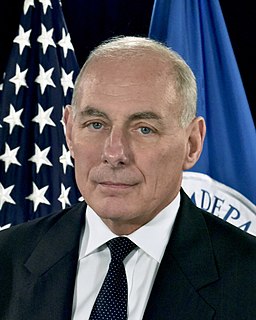A Quote by Ray McGovern
I have the manual, and the sad thing is that many of the techniques are exactly the same ones with a few enhancements by the US since World War II. So the role of our European allies and others has just really disappointed me greatly.
Related Quotes
In the US. Infantry Manual published during World War II, the soldier was told what to do if a live grenade fell into the trench where he and others were sitting: to wrap himself around the grenade so as to at least save the others. (If no one "volunteered," all would be killed, and there were only a few seconds to decide who would be the hero.)
World War II made war reputable because it was a just war. I wouldn't have missed it for anything. You know how many other just wars there have been? Not many. And the guys I served with became my brothers. If it weren't for World War II, I'd now be the garden editor of The Indianapolis Star. I wouldn't have moved away.
Because the US has control of the sea. Because the US has built up its wealth. Because the US is the only country in the world really not to have a war fought on its territory since the time of the Civil War ... Therefore we can afford mistakes that would kill other countries. And therefore we can take risks that they can't ... the core answer to why the United States is like this is we didn't fight World War I and World War II and the Cold War here.
What Secretary Ash Carter is looking at is the constant pressure that Russia's putting on our European allies. The way that Russia is trying to move the boundaries of the post-World War II Europe. The way that he is trying to set European countries against one another, seizing territory, holding it in Crimea. Beginning to explore whether they could make some inroads in the Baltics.
I actually thought that the idea of doing a World War II movie in the guise of a spaghetti western would just be an interesting way to tackle it. Just even the way that the spaghetti westerns tackled the history of the Old West, I thought it could be a neat thing to do that with World War II, but just as opposed to using cowboy iconography, using World War II iconography as kind of the jumping-off point.
Well, the role of our "allies," in my view, is a scandal. 53 other countries cooperated in the kidnapping, "extraordinary rendition," of suspected terrorists to black sites where they were administered enhanced interrogation techniques, which by the way is a direct, literal translation of "verschärfte Vernehmung" right out of the Gestapo manual.
However, there is a fundamental difference between the issue related to Japan's history and our negotiations with China. What is it all about? The Japanese issue resulted from World War II and is stipulated in the international instruments on the outcomes of World War II, while our discussions on border issues with our Chinese counterparts have nothing to do with World War II or any other military conflicts. This is the first, or rather, I should say, the second point.
We have to recognize that the reason that the global order that we've enjoyed and almost take for granted over the last several years exists is that after World War II, the United States and its allies tried to build an antidote to what they had seen between World War I and World War II. There, they'd seen protectionism, beggar-thy-neighbor trading policies, so they said, we'll build an open international economy. And they did that.
I think in many ways, the Spanish Civil War was the first battle of World War II. After all, where else in the world at this point did you have Americans in uniform who were being bombed by Nazi planes four years before the U.S. entered World War II? Hitler and Mussolini jumped in on the side of Francisco Franco and his Spanish nationalists, sent them vast amounts of military aid, airplanes, tanks - and Mussolini sent 80,000 ground troops as well - because they wanted a sympathetic ally in power. So I think it really was the opening act of World War II.































